Stories
Increasing Peat Rangers’ Capacity for Peatland Sustainability
Nov 8, 2022 by Annisa Nisitha NindyariniBanner Image By : M. Farhan Hersinanda for People for Peat
The sustainability of peatlands depends on the awareness of the community around them and how it uses them. People for Peat (PfP) is a coalition initiated by the European Union as part of the Sustainable Use of Peatland and Haze mitigation in ASEAN (SUPA) project. Aiming to create sustainable peatland management in Southeast Asian countries, PfP is actively making efforts to raise public awareness on this matter. One such initiative is the Peat Ranger Training, which recruits individuals from peatland areas as peat rangers who will act as ambassadors to educate the local community. In May 2022, PfP conducted a peat ranger training in Pontianak, West Kalimantan, to equip them with sustainable peat management knowledge.
The training began with an introduction to the topics to be covered and a gathering with the six peat rangers from Permata Village, Terentang District, who participated in this training. It took them around two hours on a speedboat and motor vehicles to get to Pontianak. However, the long journey did not stop them from participating in the training with great enthusiasm.
Edi Haryanto, one of the peat rangers, is a transmigrant from Brebes, Central Java. During the introduction, he shared his hope of learning how to properly manage peatlands. “No special land treatment is needed to get good results in Java. It’s different here where production is more unpredictable. I want to learn how to manage peatlands properly and correctly to improve welfare in Permata Village,” he said.
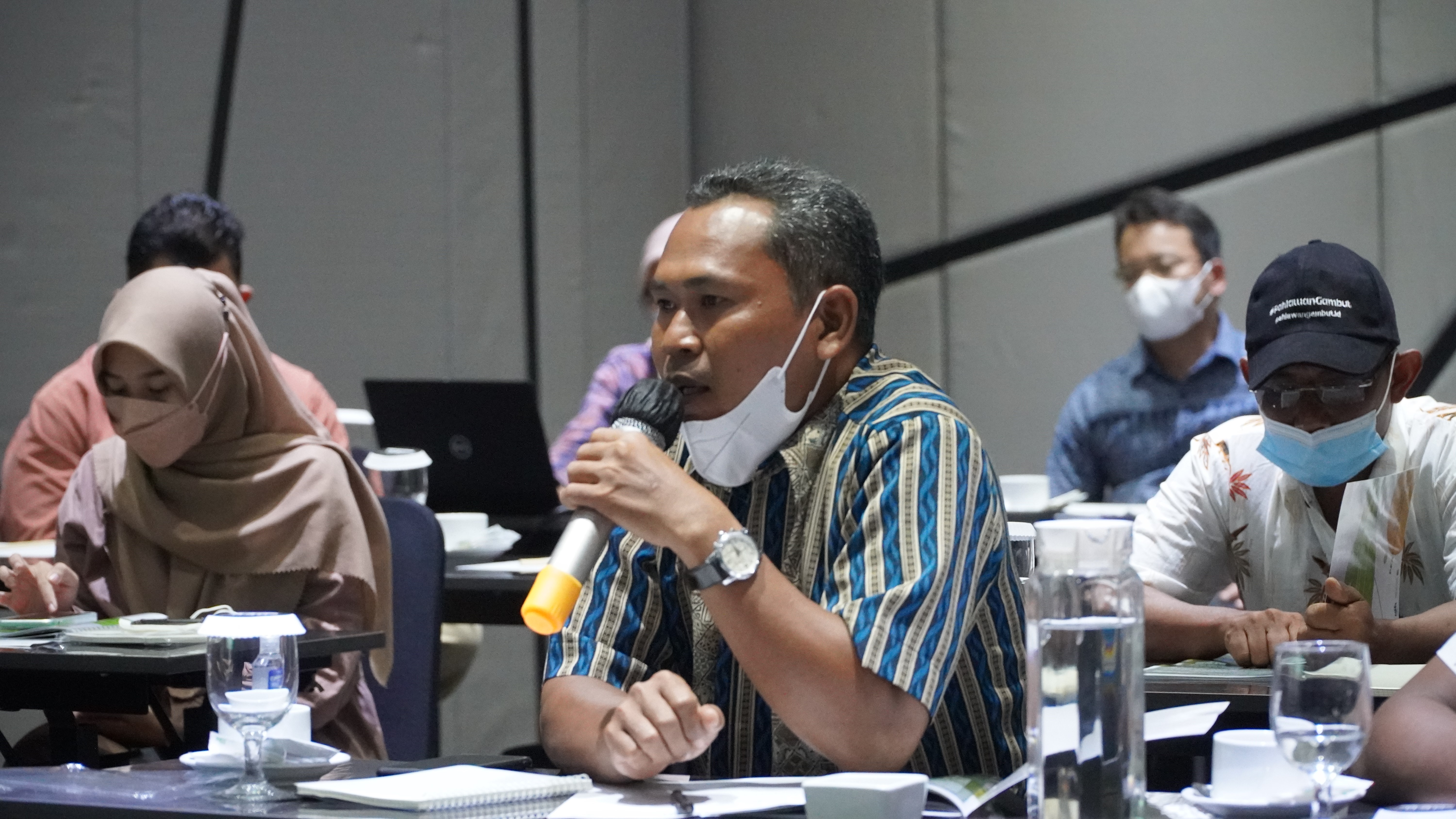
Edi Haryanto shares his hopes for the training. Photo credit: Amirull Azmi for People for Peat
The main training event began the next day. The opening speech by Satya Budi Utama as EU SUPA Senior Project Lead was followed by material presentations from a number of experts. The first presentation by Dede Sulaeman, EU SUPA Research Analyst, covered peatland water management using drainage canals for agriculture. However, this potentially causes peatland degradation, which will adversely affect the peat ecosystem and the community around it. Therefore, good water management is important to keep peatlands wet.
Impact of Peatland Degradation
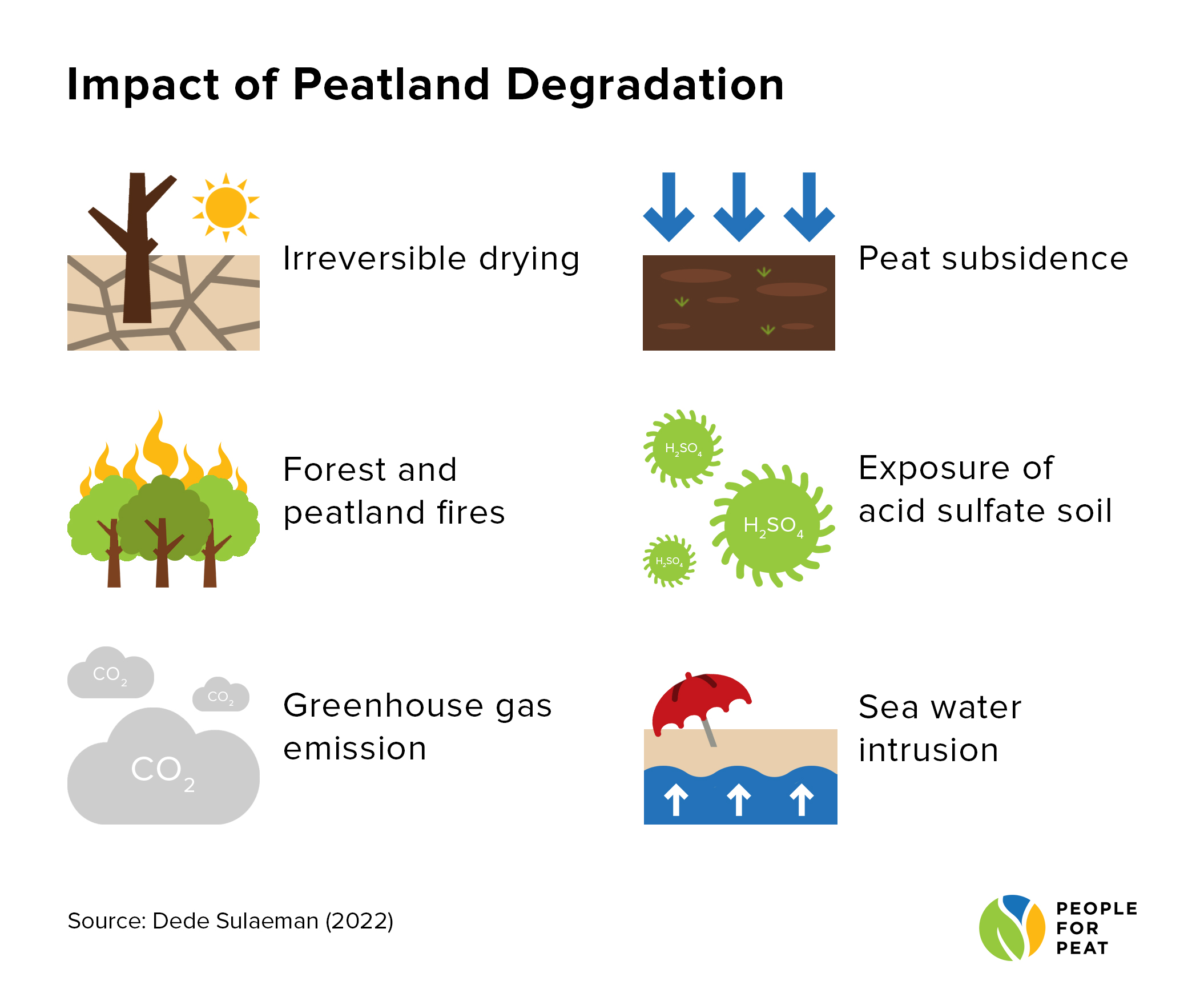
Peatland degradation also reduces livelihood alternatives for the community, as conveyed by EU SUPA Peatland Restoration Technical Expert Eli Nur Nirmala Sari when introducing sustainable livelihoods on peatlands. There are many ways to earn income from peatlands without compromising sustainability, including ecotourism. Ecotourism as a concept adopts an environmental approach that is closely related to conservation principles, which has positive impact on peat preservation. Aside from ecotourism, other alternatives are available, such as honey bee cultivation, non-timber forest products utilization and many more.
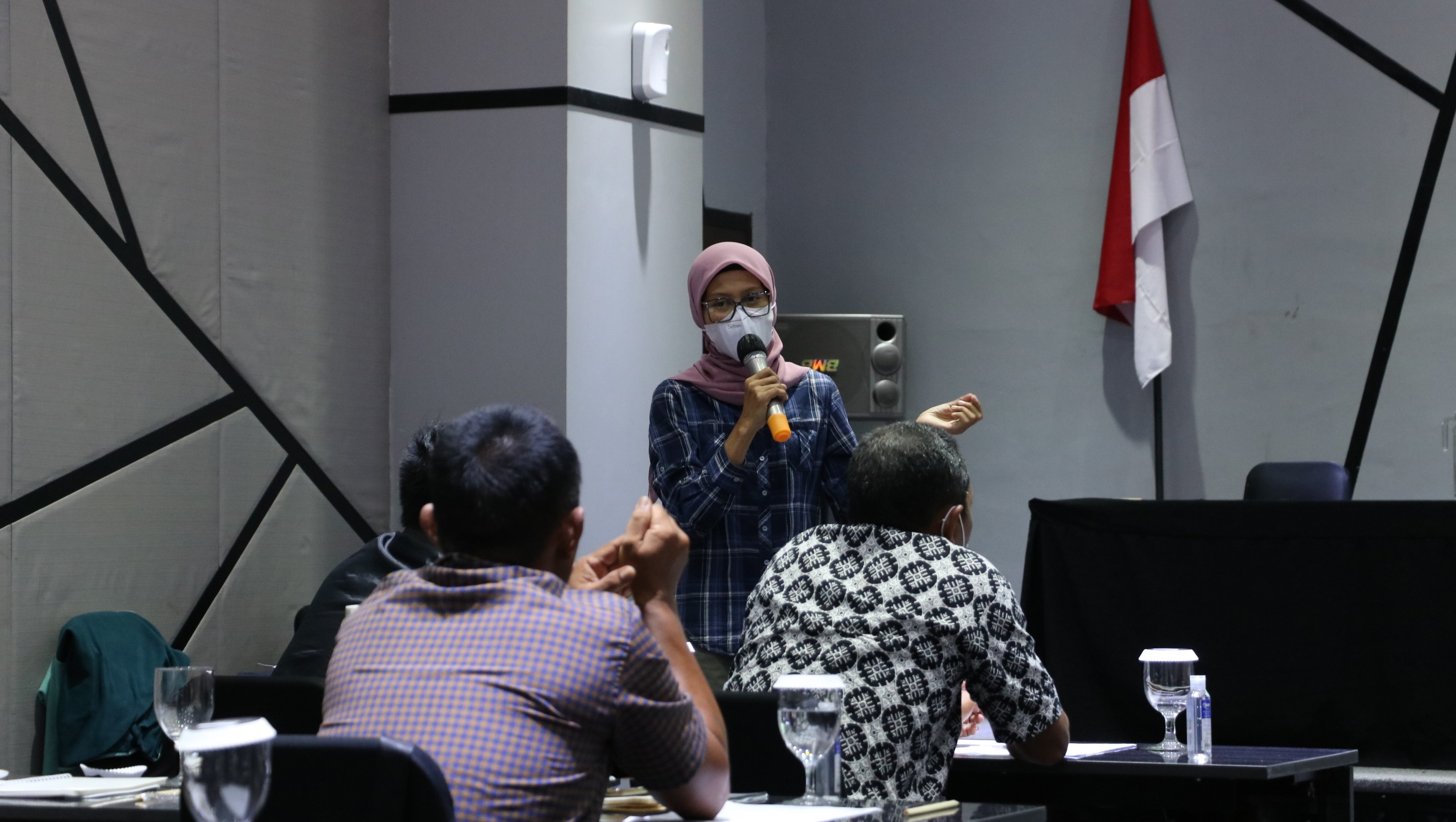
Several lecturers from the Faculty of Agriculture, Tanjungpura University, also presented at the event. Muhammad Pramulya gave lessons on sustainable cultivation on peatlands from his mentoring of corn farmer groups. In corn planting, there is an opportunity for the processing of corn waste, such as cobs, stems and skins, into animal feed and fertilizer. Meanwhile, Cico Jhon Karunia Simamora explained the phenomenon of soil organic matter degradation on peatlands due to various human activities such as reclamation and drainage as well as climate change. Such organic matter is closely related to the level of peat acidity and its degradation may cause peat ecosystem imbalance.
A lively discussion session followed the presentations. In addition to their main professions, a majority of the peat rangers are farmers. They shared their concerns and hopes regarding the management and development of peatlands in the future. Bambang Tri Wahyudi shared his concerns about unstable prices and hope for a specific sustainable products e-commerce to help maintain prices and expand reach. "Unfortunately, sustainable products are less competitive than unsustainable ones," he added.
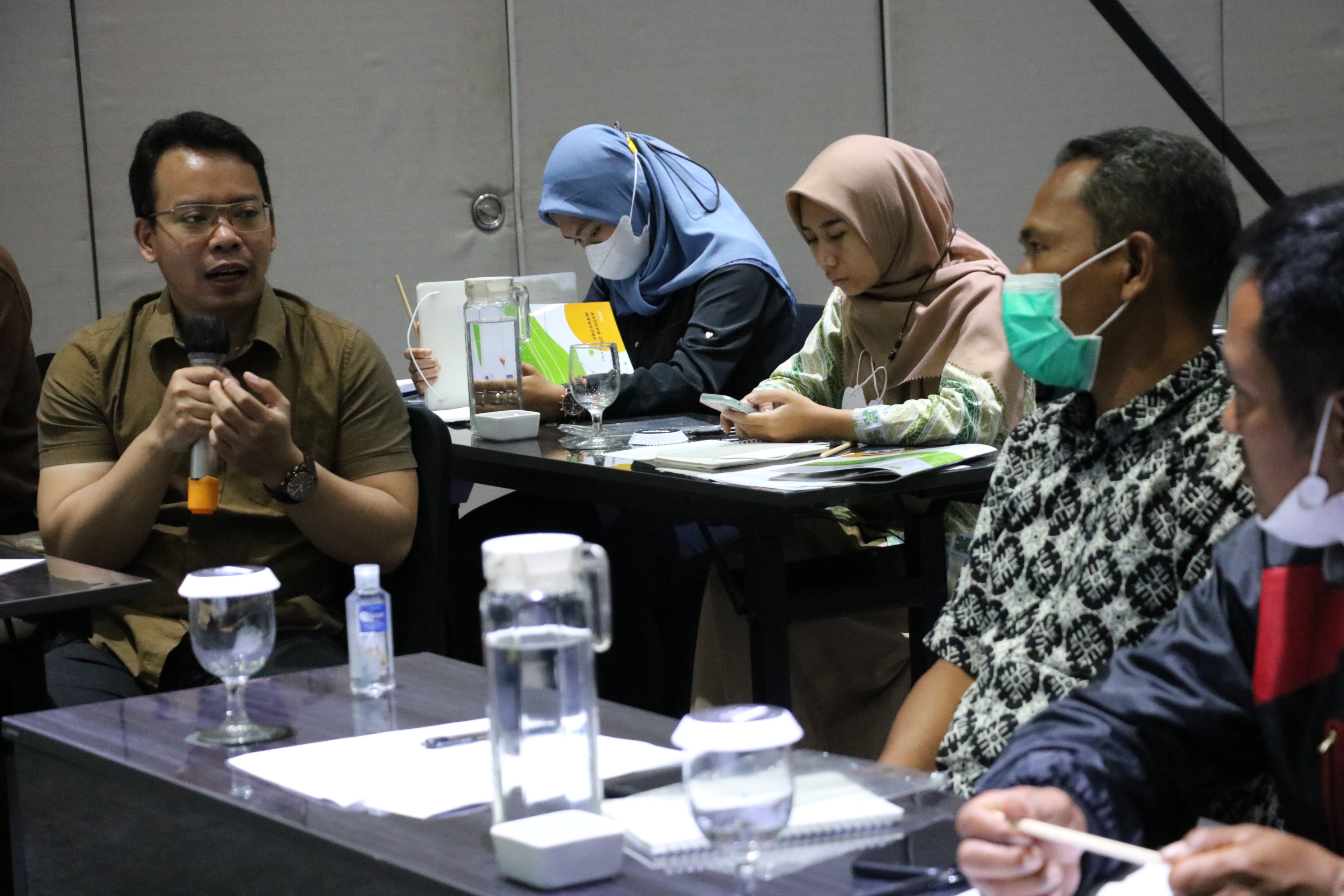
The peat rangers are tasked with transferring the knowledge they gain in the training to other villagers. At the last session, the peat rangers presented their deployment plans, which consisted of organizing regular forums at the village hall involving community organizations such as youth organizations, family welfare groups (PKK) and others. There, they intend to share their knowledge through educational videos.
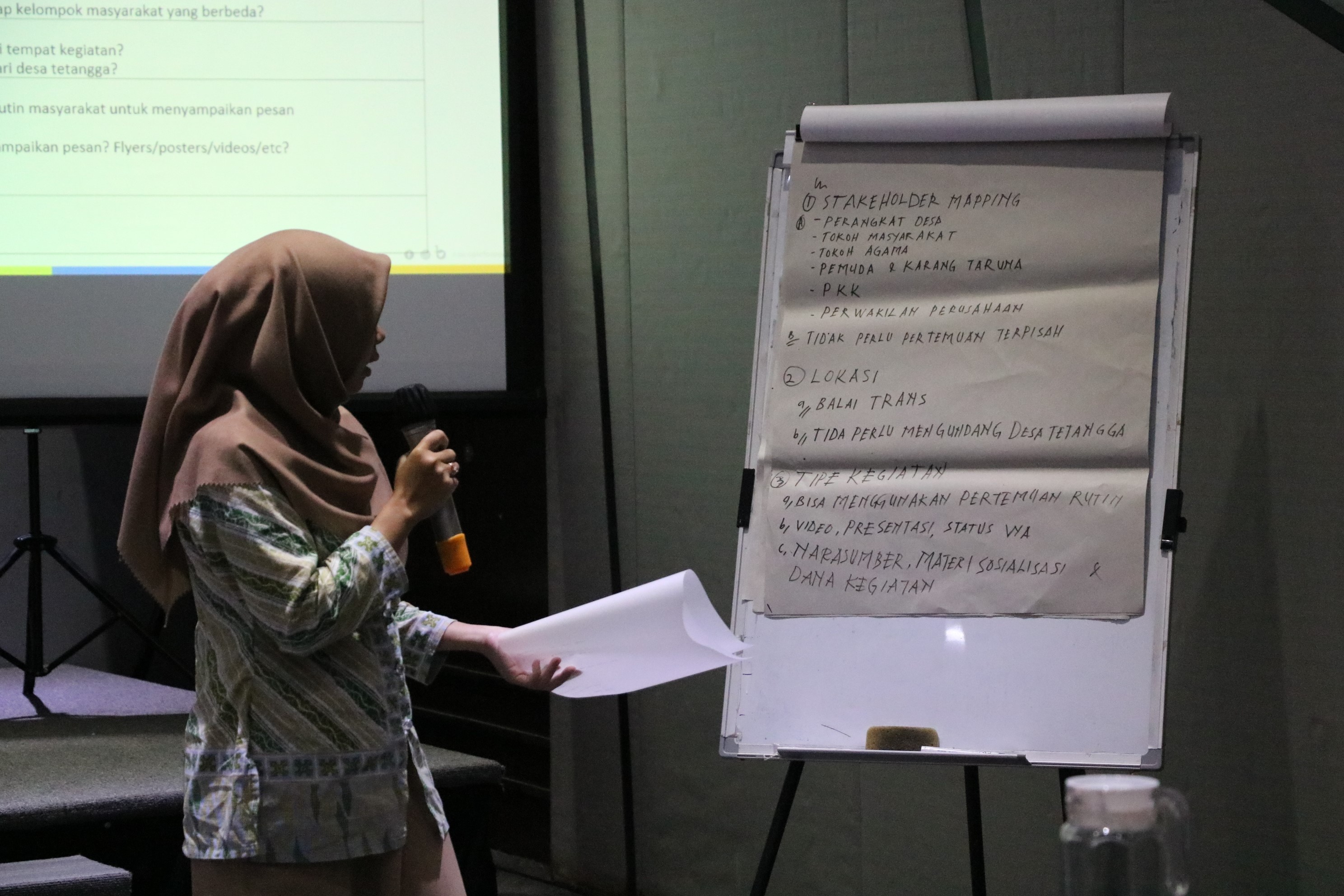
At the start and end of the training, the peat rangers were asked to fill out a pre-test and post-test. There was an 18 percent increase in their score, indicating that the two-day training successfully increased the peat rangers’ knowledge on sustainable peat management.
At the end of the event, several peat rangers shared how they felt about this event. Maharani, one of the two female peat rangers, shared that she felt lucky to be a peat ranger. She was happy to be a part of the training and to have the tools she needed to promote a shift in the Permata Village community away from unsustainable practices, such as peatlands burning. “Educating the people would require a lot of patience and consistency. I am also young, so there is a chance that the community wouldn’t listen to me. But these challenges only motivate me even more," she said.
The selected peat rangers play a key role in realizing sustainable peatland management. Their performance will determine the local community’s understanding and awareness of environmental sustainability, so continuous empowerment and assistance for their benefit are key. Apart from Indonesia, PfP has carried out similar activities in other countries, such as Vietnam, Thailand, Lao PDR and Malaysia. This initiative is hoped to help realize sustainable peatland management by the community and improve the community's economy. In addition, sustainable peatland management is also aimed at supporting efforts to reduce or even prevent peatland fires that cause haze in Southeast Asian countries.